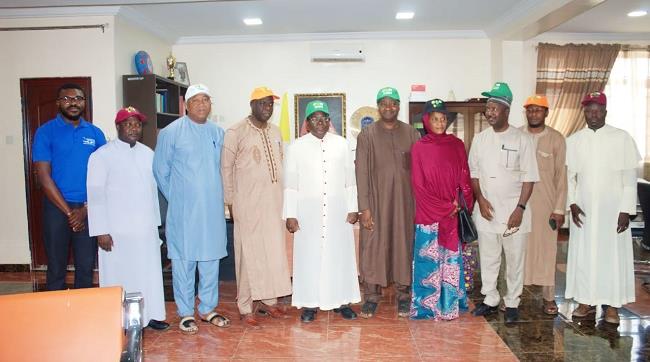The Catholic Bishop of Sokoto, Mathew Kukah, has said that Nigeria requires innovative strategies to nip in the bud the rising circumstances that allowed Nigerians to go to bed hungry.

The bishop made the observation on Thursday, March 9, 2023, while receiving a delegate from the Institute for Agricultural Research, Ahmadu Bello University, Zaria led by Prof Bitrus Tarfa, Assistant Director, Research.
The delegates were in Sokoto to inform the bishop about TELA Maize variety which the institute has developed and set to commercialise. TELA is a transgenic maize variety that is drought tolerant, resistant to stem borers, fall army worm (FAW) and capable of improving economic fortunes of farmers.
Dr Kukah said: “We are a nation where hunger is prevalent and our choices of what to eat or not to eat is limited. It is good to have food available for the people let them decide if they want to eat it or not because it is GMOs.”
He commended IAR efforts in releasing crop varieties that alleviates the sufferings of the masses and caution: “Science can be a source of good or bad, so be as transparent in your research as much as possible so that people can have information to make informed choices.
“So long as the varieties you are developing and releasing is approved by the government and people’s right to make choices is respected, we are happy to spread the good news.”
Earlier, IAR Assistant Director, Research, Prof. Bitrus Tarfa, said that the new variety called TELA Maize would ensure farmers get bumper harvest and spend less money on procuring and using insecticides/pesticides which are harmful to their health.
Prof. Bitrus noted that the TELA Maize Project, which started in 2019 in Nigeria, has the aim of releasing maize varieties that are resistant to two destructive insect pests – fall army worm and stemborers as well as drought in maize.
“The progress made So far, has resulted in developing three drought tolerant varieties (Drought TEGO) SAMMAZ 62, SAMMAZ 63 and SAMMAZ 68 that are well adapted to Nigeria’s growing conditions and have been released to farmers in Nigeria in 2020 and 2022 respectively. These maize varieties have ability to thrive well with little amount of rain or water.
“The insect resistant and drought tolerant maize variety (TELA Maize) was developed to meet the yearnings of farmers in Nigeria and save cost from insecticide spray and crop damage up to N9 billion.
On the average, Nigeria spends over N5 billion annually on maize importation into the country, thus depleting our already depleted foreign reserves, but with TELA Maize, farmers in the drier Savannas are assured of increased yield of 8-9 tonnes per hectare from their fields if they plant TELA maize varieties aside the economic gains from the ravaging effect of stemborers and fall army worm,” he said.
Prof. Rabiu Adamu, TELA Maize project lead scientist, solicited the bishop’s partnership in getting the variety to the masses as a potent weapon to fight hunger and malnutrition amongst children and adults not only in Nigeria but in the Continent of Africa.
He noted that farmers would enjoy higher returns and premium prices from their maize products stemming from improved yields and better grain quality.
“Economic losses incurred by farmers in Nigeria from Fall Armyworm to the tune of over $268 million experienced in previous years would be reversed. The addition of insect protection will also reduce pesticide use which will bring benefits to both the environment and human health,” Adamu said.
TELA Maize project is a product of a global partnership coordinated and managed by the African Agricultural Technology Foundation (AATF) in selected African countries including Nigeria, South Africa, and Ethiopia. It provides better drought tolerance, protection against stem borers, and significant protection against fall army worm (FAW).
The variety eliminates the major hindrances to maize production in the country and guarantees farmers yields of up to 7 t 10 tons per hectare under good agronomic practices.
